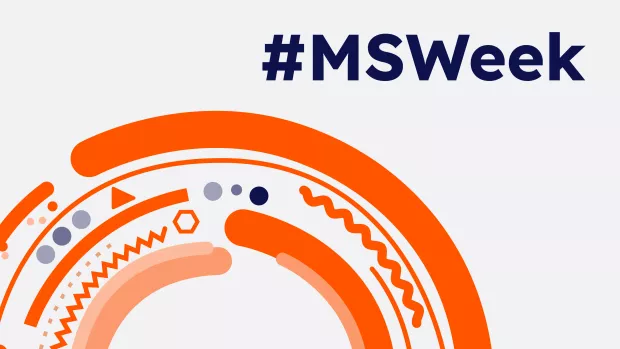
Over a third of people with MS have avoided seeking medical help due to embarrassment
This year’s MS Awareness week campaign is called MS Unfiltered. It aims to shine a light on the MS topics that can feel taboo or difficult to talk about. As part of this, we teamed up with other MS charities to survey over 1,400 people with MS about their experiences.
What’s MS Unfiltered?
MS Unfiltered is the theme of MS Awareness Week 2024. It’s a sensitive and intimate campaign that aims to shine a light on the huge range of symptoms and daily challenges that people with MS face. It also seeks to encourage and empower people with MS to speak up and get support when they need to.
As part of the campaign, we worked together with MS Trust, MS Together, MS-UK, the Neuro Therapy Network, Shift.ms and Overcoming MS to survey over 1,400 people in the UK living with MS.
People feel embarrassed about MS symptoms
The survey results showed that the majority of people (85%) find one or more of their symptoms embarrassing. And over a third (38%) of people living with MS have avoided seeking help for symptoms like bladder and sexual problems, due to embarrassment.
Over half (59%) said they were embarrassed by bladder issues, while more than a quarter (27%) were embarrassed by sexual dysfunction.
Just under half (48%) were embarrassed by walking issues, such as stumbling or not walking in a straight line.
Living with ‘embarrassing’ symptoms has meant 1 in 5 (22%) people keep their symptoms hidden from their partners, with half (49%) saying they wouldn't feel comfortable raising sexual dysfunction problems with a healthcare professional.
Empowering people to speak up
Paige Barclay lives in Dundee with her partner and three cats. She was diagnosed with relapsing MS two years ago, and some of her main symptoms include brain fog, fatigue and migraines.
She says: "Sexual sensations have felt different for me since getting MS, but I’ve still not spoken to a healthcare professional about it. When I go for my appointments I convince myself it’s so minor and that they don’t want to hear about it.
I feel embarrassed about raising sexual problems because it makes me feel like I’m not functioning well as a person.

MS is such an invisible condition. So many of the symptoms are hidden and you feel like you have to justify everything. So I’m always worried about whether I’ll be believed. My partner is great at reminding me ‘it’s healthcare professionals’ job to help with these things and they will believe you."
Kerry Riches, reality star from last year’s ITV’s Big Brother series, lives with relapsing MS and is a spokesperson for the MS Unfiltered campaign.
Kerry says: "While bladder and bowel issues will always be slightly embarrassing, for many of us living with MS it’s just something we have to come to terms with.
My bladder is rubbish, if I sneeze I wee, I never go anywhere without a spare pair of knickers and I’ve been wearing pads since I was 24 because I am constantly weeing or leaking. I’ve even wet myself on a plane before.
I've teamed up with the MS Society on this campaign as I want to show the unfiltered side of MS and show others that they are not alone."

Dr Panna Muqit, an NHS GP and Honorary Senior Lecturer at the University of St Andrews, says:
“I speak to many patients living with MS and understand the difficulty in discussing challenging symptoms with your GP. Sharing your symptoms can prevent the problem from escalating by allowing the exploration of new treatments, or adjustments to your diet or lifestyle.
In addition to your GP, there are other healthcare professionals, such as an MS nurse, an incontinence specialist, or a neurologist, who can assist you with potentially embarrassing MS symptoms. It’s crucial to remember that you are not alone. I strongly encourage patients to engage with others who are experiencing the same symptoms through support groups or MS charities.”
Our Chief Executive Nick Moberly, says:
“Although MS symptoms like bladder issues, sexual dysfunction and mobility problems are common, they can be difficult to talk about. Troublingly, our new research shows many people feel embarrassed by their MS symptoms. This has resulted in people avoiding seeking medical help and even feeling the need to hide their symptoms from loved ones.
That’s why this MS Awareness Week, we want people to know that whatever they’re dealing with, they’re not alone. We’re delighted to be teaming up with six incredible MS charities to shine a light on the wide range of symptoms people with MS face. We want to break the stigma and give people the confidence to speak up when they need support. Our free MS Helpline is available to anyone affected by MS and we urge people to find out what support is available by visiting our websites.”
Join the conversation by searching #MSUnfiltered


